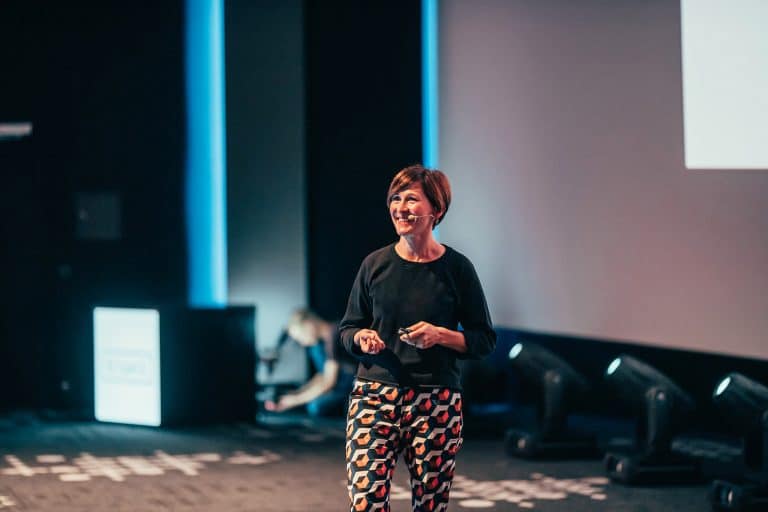I wasn’t always very hardworking
I grew up in Helsinki in a pretty regular middle-class family and had a very good upbringing.
As a child, I was always very much into sports and technology. We got our first computer when I was around seven, and I remember spending a ton of time on it and later on even assembling my own setups. Even though I always did well at school, I didn’t actually put much effort into it before university since my other interests kept me busy!
When the time came to start thinking about career orientation, I was drawn by both business and technology. I eventually ended up choosing computer science as I knew first-hand how big of a role software would play in our society in the future.
“Whatever career path you choose, don’t become an entrepreneur!”
Growing up, I never really thought I’d become an entrepreneur. I’ve seen my dad being an entrepreneur for most of my life. I remember him occasionally telling me, “Whatever career path you choose, don’t become an entrepreneur!”. So, I knew that it’s a lot of hard work, and most of the time, not very glamorous.
When I began my studies at Aalto University (so-called Helsinki University of Technology back then), I was fortunate to be put in a freshman group with a number of like-minded people. We quickly became friends.
As our studies progressed and we’d learn about the possibilities in the industry, we started to get excited about pursuing entrepreneurship together and did a few hobby projects of our own.
At some point, once we were closer to the end of our studies and had also gained some work experience, we thought we’d take the leap and found our own company. To do that, we applied to the accelerator program that the entrepreneurship society of our university arranged, now called Kiuas, which helped push us in the right direction.
Things that really motivate me about entrepreneurship.
The first one is a sense of achievement. It’s incredibly rewarding to see the positive impact of your business and see how people get value and thank you for something that you’ve created from nothing by yourself, or with a small team.
Secondly, learning. When you’re building a company from scratch, you have no choice but to either learn whatever it takes to solve all the problems you’re facing or give up. You can’t really outsource or delegate your problems because you don’t have the resources to do that. As a result, I’ve had to learn the key things about every area of building a software business and also learn to do most of that by myself, which again has been incredibly rewarding.
Thirdly, the support from my loved ones. Everyone I know has always been very supportive of me being an entrepreneur, which is something I’m very grateful for.
As an entrepreneur, if something goes wrong, it’s always your fault
There’s a lot that I really love about entrepreneurship: creativity, need to innovate, solve problems and think outside the box, the variety of different disciplines you need to master, and of course, the sheer amount of responsibility you need to carry. As an entrepreneur, if something goes wrong, it’s always your fault, and that really forces you to be intellectually honest.
Some people are probably born to be entrepreneurs, but it’s definitely a skill set that can be learned. To be honest, when we first started, I really didn’t know much about it and still regularly find myself to be naive in certain aspects related to it.
Entrepreneurship is psychologically very demanding
Being an entrepreneur is hard. It’s a lot of hard work, and it’s also psychologically very demanding. To succeed, you have to be in it for the long haul, and for the right reasons.
I think becoming an entrepreneur is a great experience that could help anyone become a better version of themselves, both personally and professionally. But I definitely don’t think it’s a career choice that many people should choose.
As we know, most startups fail, and to win against these odds, you should be prepared to work long hours with minimal to very little pay for many years on end. What’s more, most of your work probably isn’t the fun and creative things you think working at a startup will be because you simply have to do whatever is most important at any point in time, and often by yourself. You usually can’t afford to delegate or outsource and have to learn what works and what doesn’t to ultimately build a successful business.
Working for someone else is easier, less lonely & more secure
As a result, the expected return, both financially and career-wise, for being an entrepreneur, is almost always much worse than simply working for someone else, and it’s also likely to be much more lonely and uncomfortable too.
However, if none of that bothers you, then you might just make a good entrepreneur!
For any entrepreneur, you are your own biggest enemy. To succeed, you need to know yourself well, be honest, and master your own mental game. A while back, I wrote about some of the most important lessons I’ve learned on the topic in more detail here.
However, when you’re starting to build the business, make sure you’re being completely honest about delivering real, tangible value for your customers. Before you spend too much time and money building any kind of a product or service, make sure you really are on the right path.
Discipline and time management skills drive long-term success
As mentioned, we founded Viima together with my friends from the university right after taking part in the accelerator program. We initially had a completely different business idea, but once we really had to test that idea with customers during the accelerator program, we soon learned that our original idea wasn’t very good.
As a result, we decided to pivot our business and help other organizations better collect, develop, and test their ideas, which put us on the path that Viima is still pursuing today.
It took us a couple of months to develop the first version of the product and get our first paying customer, and then a few more months to get the first big customer that really helped us get the key features of the product in place.
The beginning was really hard since we bootstrapped the company by not paying ourselves for the first couple of years. We still had our day jobs and were also trying to get our master’s degrees. That obviously meant that we were working very long days, and had to be extremely disciplined on where and how we spent our time in each of the aforementioned areas. However, the discipline and time management skills we picked up back then turned out to be extremely helpful in driving long-term productivity for us.
Having a purpose helps manage stress
Stress really wasn’t a very big concern, at least for me personally, and I think the biggest factor for that was that we really enjoyed the experience and didn’t have anything to lose. In my experience, fear, anxiety, and loss of meaning with whatever you’re doing often seem to be the primary drivers that cause people to lose control and eventually burn out.
I think one of the most satisfying moments on our journey was quite early on when we hired our first employee. At that time, we still didn’t pay ourselves anything, so it was really cool to see that we’d actually built a business that helped a handful of customers and was able to provide for the livelihood of someone.
Being bootstrapped, we’ve always been very resourceful, financially conservative, and have also invested heavily in providing our customers with a reliable service and solving any problems we face, so at least so far, we’ve managed to avoid major crises.
Invest in a highly automated & scalable online marketing approach
The biggest challenge has simply been the constant struggle of always having too little time, too little resources, and when we do things sustainably, everything happening slower than we’d like to.
One of the key decisions we made early on was to focus on being the global leader in our market, so we set out to provide more value for a much lower price than any of our competitors, and that’s still something we’re constantly pushing to do and get better at.
We’ve also invested heavily in building a highly automated and scalable online marketing approach, which has served us really well and has made our business model of offering more for less possible.
After years of systematic hard work, we’ve been able to get to a position where we’re now. According to a recent Gartner report, Viima is the most widely used software in our field of innovation management, has the highest customer review scores, and is also the clear leader in terms of our online presence and global brand awareness in the field.
The two most common startup mistakes
Having observed many startups up close, many of them make at least one of the two common startup marketing mistakes. The first is that they invest heavily in advertising, PR, etc. already before they’ve been able to create something that customers really love, in other words, achieve product-market fit. Most of those efforts will unfortunately be wasted, and that is something startups with limited resources can’t really afford.
The other big mistake is that when they do finally get the product-market fit right, they don’t make marketing a truly strategic priority, which means that marketing typically becomes just a support function, or could even be outsourced. Marketing is, in the end, what drives truly scalable growth once the product or service is solid, and is thus at the very core of what the startup has to focus on.
My advice for aspiring entrepreneurs
As the classic advice goes, you should be 10x better than any of the alternatives in whatever it is that you’re choosing to do, and unless you already are, I’d recommend you iterate your value proposition until you get that right.
That was certainly one of the key mistakes we made early on: we spent too much time building the product, not the value proposition. That decision really slowed the growth of our business early on.
The final piece of advice I’d give is to have really high standards of performance for who you hire, which is of course easier said than done. In our hiring decisions, we look for proactive people who are ambitious, driven, always over-deliver, and are hungry to learn more. The ideal hire is never satisfied with their current skills or achievements.
In a small company, the difference between having top performers, or just your average employees, will make all the difference in the world for the future of your business.











